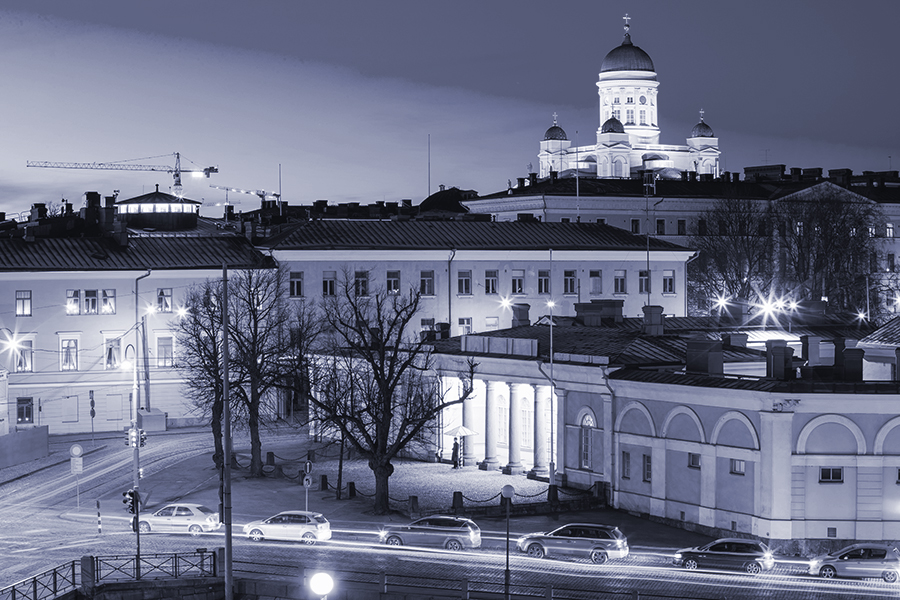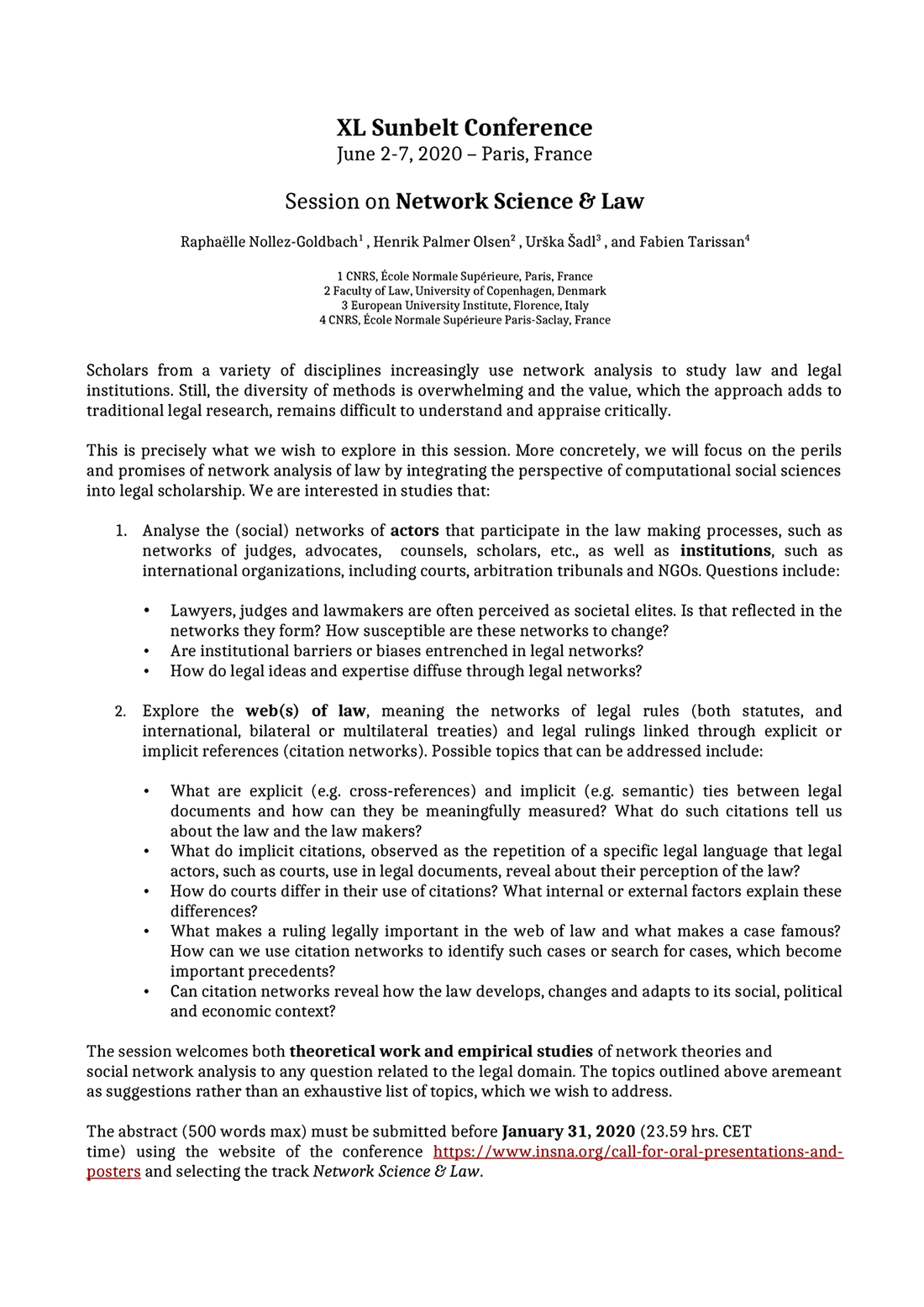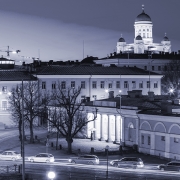
NOLESLAW 3RD WORKSHOP PROGRAM
Helsinki November 1 and 2
November 1, 2018
Suomen Laki sali (PIV) Porthania, Yliopistonkatu 3
16:30 – 17:00 Welcome by the organizers and Introduction to the workshop (Johan Lindholm, Suvi Sankari, and Urška Šadl)
Keynote
17:00 – 18.30 Fabien Tarissan, CNRS & ENS Paris-Saclay: Ethics & Algorithms: From Recommendation to Prediction
19:00 Dinner and social activity (for participants)
November 2, 2018
Morning session
Faculty Board room P545 Porthania, Yliopistonkatu 3, 5th floor
9.00 – 9:15 Welcome and coffee
9:15 – 11:30 New Ideas – presentations of empirical research projects
Chair: Johan Lindholm
Format: The speakers present their research projects in approximately 10 minutes, focusing on the main idea (research question) and the empirical approach, which the project adopts. The discussants give brief comments and set the stage for the plenary discussion. To get better feedback the speakers are encouraged to email extended abstracts (750 – 1000 words) to the discussants beforehand.
Nora Stappert, iCourts: Judges, Lawyers, And The Practices of Interpretation in International Criminal Law
Martin Christensen, EUI: External References Among Regional Human Rights Courts – Empirical Patterns and Visualization
Discussant: Raphaëlle Nollez-Goldbach
5 min break
Amalie Frese, University of Vienna: Judicializing Economic Inequalities
Andrea Peripoli, EUI: Conceptions of Market in CJEU’s Case-law on Labor Rights
Clara Rauchegger, EUI and University of Innsbruck: Governing online hate speech and fake news
Discussants: Suvi Sankari, Mattias Derlen
11.45 – 12.00 Break
12:00 – 13.00 Paper presentations: Old Problems of Jurisprudence, Uncovered Sources of Legal Knowledge
Chair: Suvi Sankari
Format: The speakers present the papers in 15 minutes. The discussants give brief comments and set the stage for the plenary discussion. To get better feedback the speakers email extended abstracts (750 – 1000 words) to the discussants beforehand.
Johan Lindholm and Mattias Derlen, Umeå University: Reconsidering Precedent: Lower Courts’ Use of the Swedish Supreme Court’s Case Law
Anna Wallerman, University of Gothenburg: Reaping what they sowed: Preliminary references and (the erosion of) national procedural autonomy
Discussant: Emilia Korkea-aho and Jacob v. H. Holtermann
13.00 – 14.00 Lunch
Afternoon session
Chair: Emilia Korkea-aho
Format: The speakers present the papers in 15 minutes. The discussants give brief comments and set the stage for the plenary discussion. To get better feedback the speakers email extended abstracts (750 – 1000 words) to the discussants beforehand.
14.00 – 15.30 Paper presentations: Old Problems of Jurisprudence, New Approaches to International Law
Raphaëlle Nollez-Goldbach, ENS & CNRS, Paris, Decision Process At The ICC, Debate And Dispute Between Judges
Jacob Slosser, Faculty of Law, University of Copenhagen / iCourts: Interpreting The “Quality Of Law” At The European Court Of Human Rights: Metaphorical Framing And Evaluative Judgment
Mark Klamberg, University of Oxford and Stockholm University, Empirical legal research in international law
Discussants: Paivi Leino, Nora Stappert
Final session
15.30 – 16.30 Wrapping up and discussion over a Friday drink and Hygge







